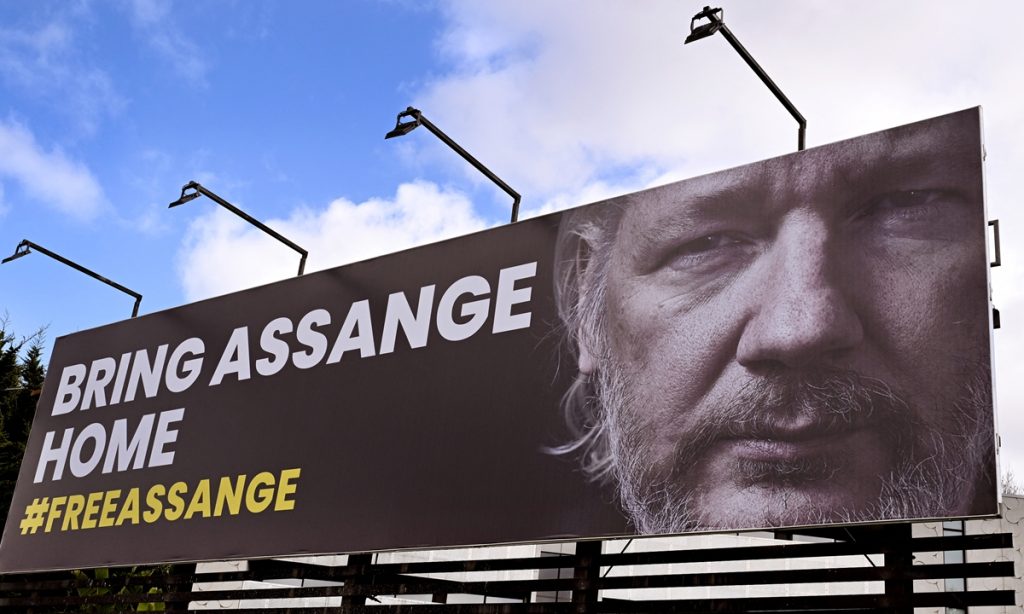Assange case shows Australia remains US' most valuable of abused friend

Australian Prime Minister Anthony Albanese and opposition leader Peter Dutton never agree on much. But there is one topic they are in curious agreement over: the dropping of charges for the founder of WikiLeaks, Julian Assange, and his return to Australia.
The indictment comprises 18 charges, 17 concocted (there is no other word) from the brew that is the US Espionage Act of 1917, risks earning Assange a prison sentence as long as 175 years.
In an effort to convince Washington to drop its ongoing legal proceedings against Assange, who currently awaits extradition to the US in London's Belmarsh Prison, a delegation of Australian politicians has been mobilized.
The delegation of Australian parliamentarians heading to Washington on September 20 is unusually eclectic. From the outside, they seem a glorious rambling tumble of the country's views. They are doing so as part of what they see as an educating mission ahead of Albanese's October visit to the US capital.
The delegates are promising slightly different approaches with a similar theme. Senator David Shoebridge wishes to make the case that Assange was an inspiring truth teller about US war crimes. His accompanying college, former Nationals leader and deputy prime minister Barnaby Joyce, however, wishes to focus on essentials: Assange committed no alleged offence as a US national.
In Shoebridge's words, the delegates will also remind US lawmakers "that one of their closest allies sees the treatment of Julian Assange as a key indicator on the health of the bilateral relationship."
Australia is an excellent friend of the US and it's not unreasonable to request to ask the US to cease this extradition attempt on Mr Assange, said independent MP Monique Ryan earlier September. The WikiLeaks founder was "a journalist; he should not be prosecuted for crimes against journalism."
What should be expected when the delegation commences its round of information sessions? For one, there is nothing to say that those in Congress, the State Department, and the Department of Justice will not give their own serving of teaching to the delegation. The narrative of Assange in Freedom Land is of a kindergarten rosy-simplicity: he soiled US national security by revealing secrets; he endangered confidential sources; he propagandised for open government, a Svengali hoping to seduce the intelligence community into the cause of open government.
The fact that this visit is taking place ahead of the Albanese visit can be seen in a few ways. A generous reading is that the prime minister will arrive to an audience aware about the concerns of Australian voters, the vox populi conveyed through representatives across the political spectrum.
A less charitable interpretation is that Albanese is short of options and short of influence in the corridors of Washington. An ally so servile, so compliant, and so accommodating - one need only sees the AUKUS agreement and its designation of Australia as a forward US military base to monitor and target China - is an ally whose opinions can be ignored.
The latter view is hard to ignore given the almost snorting dismissal of Australian concerns for Assange at the Australia-US Ministerial Consultations held between the two countries toward the end of July. These were the words of Australia's Foreign Minister, Penny Wong: "[W]e have made clear our view that Mr Assange's case has dragged for too long, and our desire it be brought to a conclusion, and we've said that publicly and you would anticipate that that reflects also the positive we articulate in private."
US Secretary of State Antony Blinken proved less than receptive. Assange had been "charged with very serious criminal conduct in the United States in connection with his alleged role in one of the largest compromises of classified information in the history of our country. The actions that he has alleged to have committed risked very serious harm to our national security, to the benefit of our adversaries, and put named sources at grave risk - grave risk - of physical harm, and grave risk of detention."
A recent, dressed-up rumor disseminated by the US ambassador to Australia Caroline Kennedy is that a plea deal is in the offing. Former British diplomat Craig Murray has dismissed its credibility. His reasoning is sound enough. US undertakings in this regard are manifold and shallow; they mean little in the context of international law and practice. Sadly, where Albanese is concerned, there is a sense that these efforts are all ultimately conditioned by a process that is out of his, and Australia's hands. Impotent, an ally all too willing to give and all too reluctant to demand, Australia remains the most valuable of abused friend.